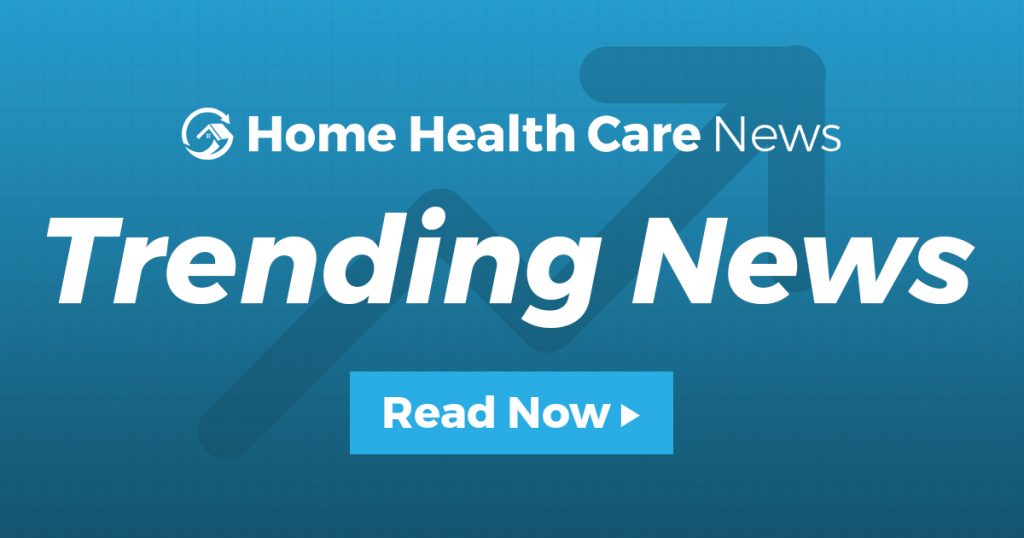
Once A Response To COVID-19, Hospital-At-Home Startup Inbound Health Going National
The Minneapolis-based health system Allina Health is launching a new company named Inbound Health. The startup will enable health systems and health plans to establish hospital-at-home and skilled nursing-at-home programs around the country.
Inbound Health has been around since May 2020 under the Allina Health umbrella in the Minneapolis area. Now, thanks to financial support from Flare Capital Partners, Inbound Health is growing beyond Minnesota and taking its platform elsewhere.
“We’re taking our experience in Minneapolis: the care model, the clinical leadership, the technology platform we built, the analytics that are AI-driven and the partnership model. And we’re bringing that to other markets nationwide,” Inbound Health’s CEO David Kerwar told Home Health Care News. “As we started conversations with health systems around the country, it’s clear that this level of care — both hospital and skilled nursing — is something patients and health systems are looking for.”
Initially, Inbound Health was launched as a response to the COVID-19 pandemic. The program quickly was able to help serve over 180 diagnoses in the home and more than 4,200 patients.
Inbound Health partners with health systems that are typically in large markets that already have some sort of home-based care workforce.
What the startup hopes to do is bring a full stack of capabilities to fill the gaps for a health system. Those services can range from sending nurses and physical therapists into a home, to mobile labs and imaging.
“Then we’re wrapping that with virtual care that’s provided by Inbound,” Kerwar said. “We provide all the technology that’s required for that. Everything from the biometric devices, to the engagement apps that we give to the patients and their family members. All of that is on top of the workflow platform that we offer in order to design and manage the entire care episode.”
On Flare Capital’s end, the company backs a bevy of health care companies, including the likes of Bright Health Group, Eden Health and Iora Health.
Before joining Inbound Health, Kerwar was the chief product officer at Mount Sinai Health System, where he built a digital-first capability to help power the company’s population health programs.
Because regulatory uncertainty lingers around hospital at home, there was some relief when the public health emergency (PHE) was extended last week.
During the PHE, the Centers for Medicare & Medicaid Services (CMS) created the Acute Hospital Care at Home waiver, which gave hospitals, health systems and other home-based care providers the ability to provide – or help provide – hospital-level care in the home.
Inbound Health is not leveraging any hospital-at-home waiver in Minneapolis today and doesn’t currently plan on using the CMS one in the near-term future, Kerwar said.
“Mostly because the care model doesn’t necessarily work with what we’re doing here in the Twin Cities,” Kerwar said. “We’re not averse to it, but from what we can see, most health systems actually aren’t using the waiver. We know it’s temporary, we know it’s going to be replaced and we’re excited and anxious for CMS to announce what they’ll be doing with the Medicare fee-for-service membership and what kind of benefit they will package in the next year or two.”
Inbound Health has been focused on the commercial and Medicare Advantage base of patients, and will bill episodically for at-home and virtual visits.
For now, Inbound plans to expand to three or four sizable markets in the next year. Eventually, Kerwar expects the startup to be in 15 markets in the next three to four years.
“We’re really excited about the partnerships we’re developing and some of the investment we’re going to be taking from supply chain partners,” he said. “We’re actually building a whole side of our platform that’s going to connect with labor that wants to work on more of a contingent, almost like a gig worker, that will help us with this care model. We think that’s going to be pretty powerful as a way to be able to solve some of the labor problems that our partners are finding.”